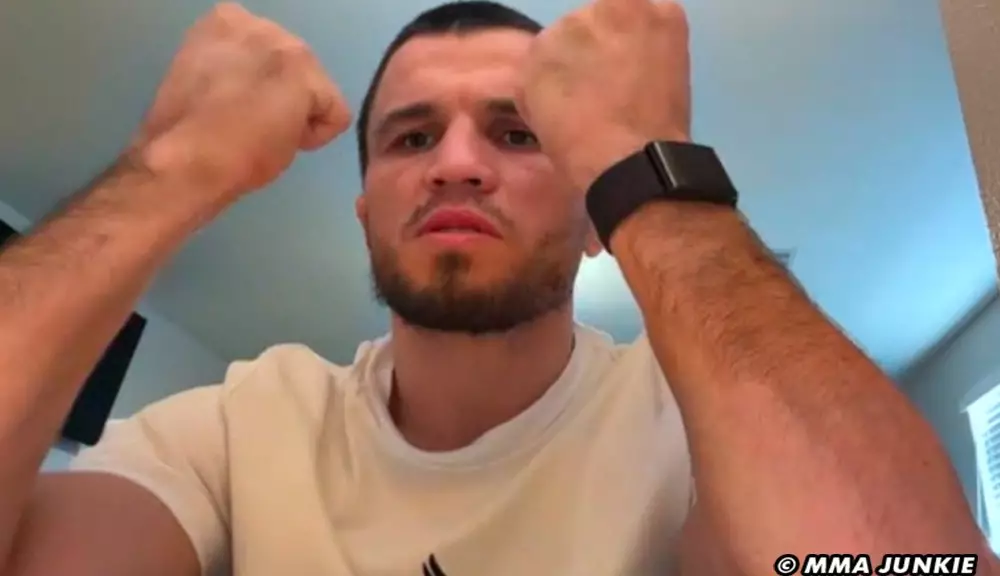As excitement builds for UFC 311, scheduled for January 18 at the Intuit Dome in Inglewood, California, fans are eagerly anticipating the bantamweight title fight between Umar Nurmagomedov and Merab Dvalishvili. Both fighters are seasoned competitors, boasting impressive records—Nurmagomedov at 18-0 and Dvalishvili at 18-4. However, it is the friction between them that has captured the attention of the MMA community. With Dvalishvili recently securing the title after defeating Sean O’Malley in September, he has been vocal in his critiques of Nurmagomedov, stating that the challenger represents a legacy rather than having earned the title shot through merit.
Dvalishvili’s comments have branded Nurmagomedov as “a spoiled little baby,” suggesting that the unbeaten fighter does not deserve this opportunity. This dominates the conversation as fight week approaches, with both athletes displaying a strong desire to back their words with action inside the Octagon.
Words as Weapons: Analyzing the Mental Warfare
The psychological aspect of MMA is as crucial as physical ability, and this bout exemplifies that notion. As the days draw closer to fight night, the exchanges between Nurmagomedov and Dvalishvili have escalated in intensity. Nurmagomedov remains unfazed by his opponent’s pre-fight bravado. He emphasizes that this clash will not be personal; rather, it will be about seizing the championship title. “I just want to take his belt,” he stated, displaying a laser focus on the task at hand.
In contrast, Dvalishvili has sought to undermine Nurmagomedov’s accomplishments, implying that his success is due to his family’s famed legacy rather than his skills. This tactic reflects an understanding of the psychological games that can influence a fighter’s mindset, but it also invites the question: will this strategy backfire during the bout? The stakes are high, and the mental games might bear consequences as the actual fight approaches.
The Impending Showdown and Its Stakes
As both fighters prepare, the question lingers: how will the animosity manifest in the Octagon? Nurmagomedov, ranked fifth in the bantamweight division by USA TODAY Sports/MMA Junkie, has expressed confidence in his abilities. Despite acknowledging the unpredictability of fights, his conviction stands strong. He stated emphatically, “This guy will never beat me.” Such declarations provide insight into his training mindset—one that focuses on self-belief and overcoming negativity.
Dvalishvili’s claim that he will hand Nurmagomedov his first loss is not just bravado; it reflects deeper ambitions for his reign as champion. However, the pressure of these expectations can be a double-edged sword, potentially affecting his performance on fight night. The narrative leading up to UFC 311 isn’t merely about who is the better fighter, but rather who can handle the weight of expectations better and convert that energy into victory.
As UFC 311 draws near, the anticipation builds not just for the fight itself but for the unfolding drama that is integral to combat sports. The friction between Umar Nurmagomedov and Merab Dvalishvili sets the stage for what promises to be more than just a physical contest; it is a battle of ideologies, legacies, and personal determination. Each athlete brings a unique perspective to the bout. For Nurmagomedov, the challenge is about proving his legitimacy as a title contender, while for Dvalishvili, it is about validating his championship worth amidst skepticism.
When the cage door closes, the verbal exchanges will become irrelevant, and what will matter is the performance each athlete delivers. The ethos of combat sports suggests that while words can often fuel a rivalry, it is the fight that ultimately determines the truth. In this charged atmosphere of rivalry, banter, and ambition, the UFC 311 matchup is set to be a defining moment for both fighters—one that fans will not want to miss.

